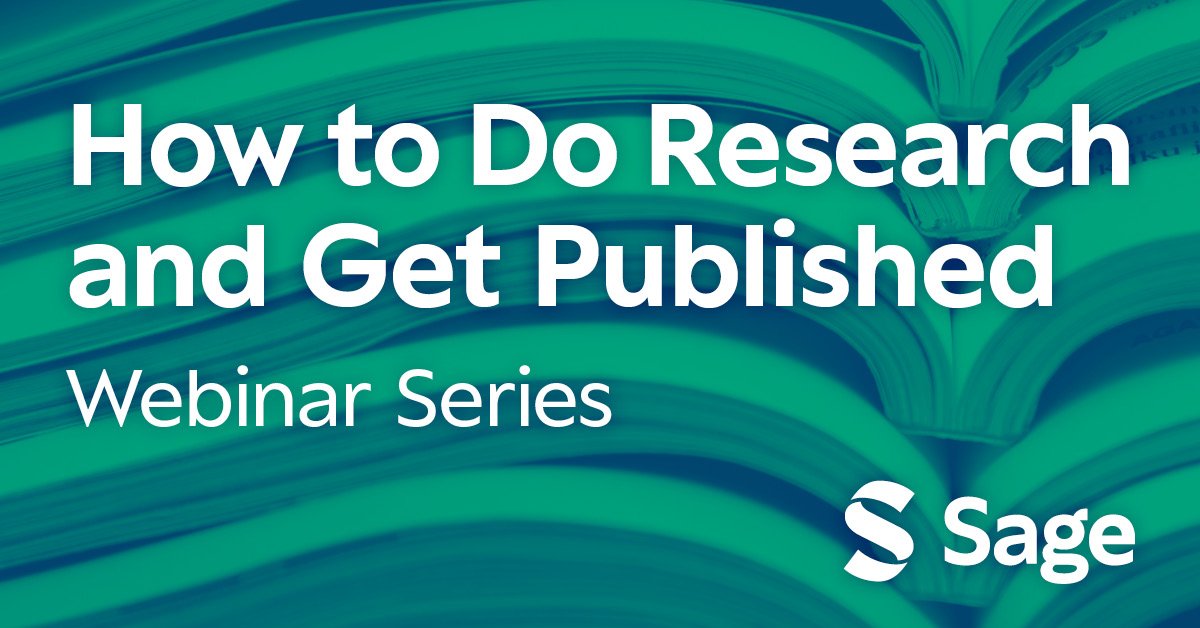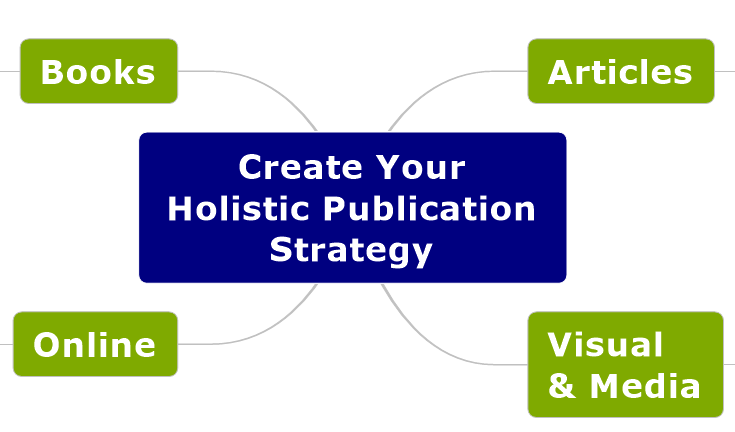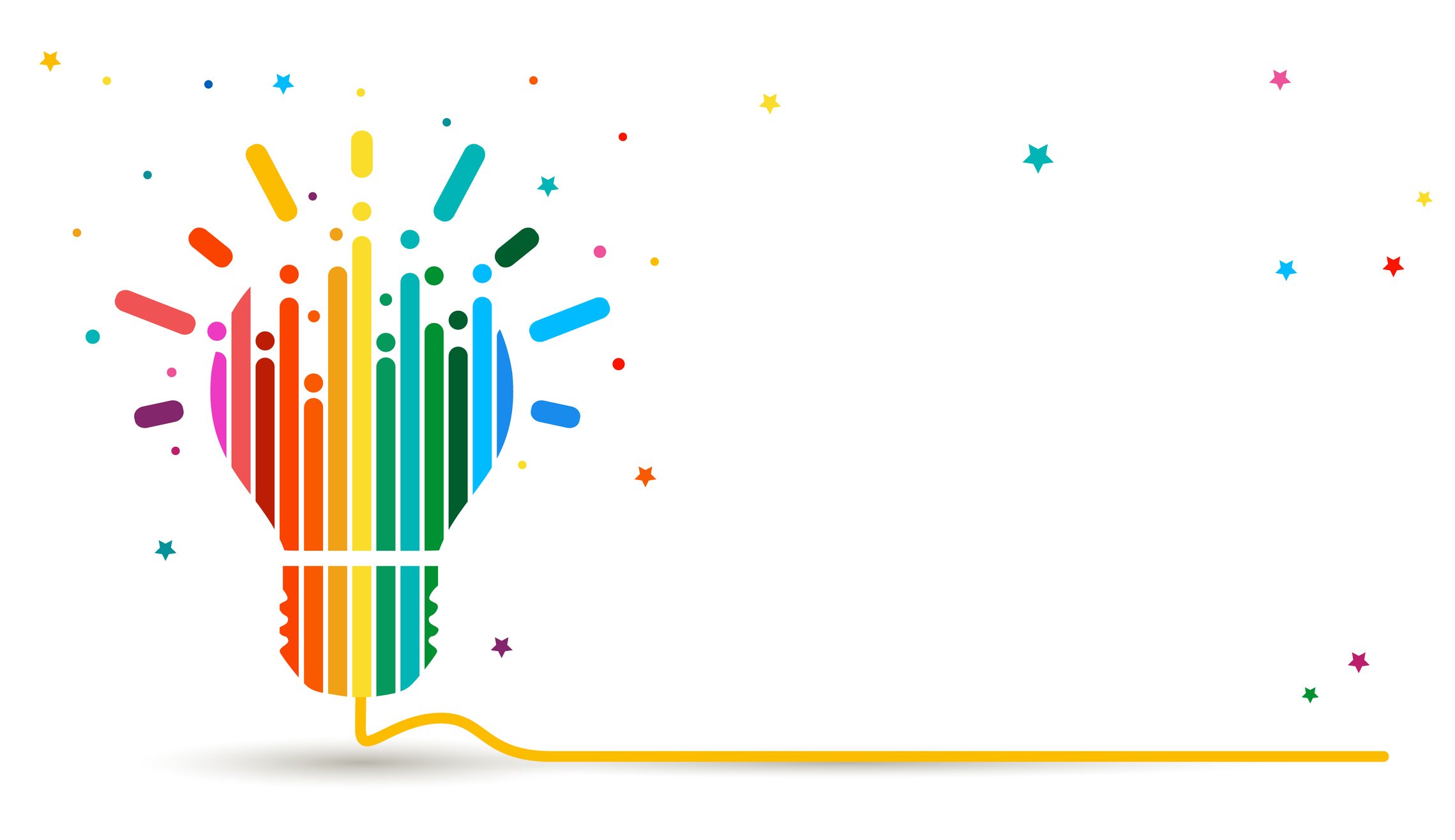
How to write and structure an article’s front matter
Whether you're an early career researcher or a seasoned researcher, understanding how to effectively craft the front matter of your article is key to capturing your reader's attention and setting the stage for a compelling narrative. Join our expert presenters as they unravel the intricacies of front matter, guiding you through the process of creating a polished and impactful introduction to your work. From crafting an attention-grabbing title and constructing an informative abstract to strategically placing keywords and writing a compelling plain language summary, this webinar will equip you with the skills to optimize the visibility and discoverability of your article. This webinar is designed to enhance your understanding of the critical elements that make up the front matter of an article.
Hosted by Sage's Jessica Offenberger and Sean Scarisbrick and featuring a Q&A session with prestigious guest speakers, the webinar will provide essential guidance for anyone hoping to get published in an academic journal.
Register now for this free event!
Sage Research Methods Community posts about academic writing and publishing
You’ve probably heard it before: “Never cite Wikipedia in your research paper.” And it’s good advice. But maybe you haven’t heard about how using Wikipedia (especially its citations) actually strengthens your work and even helps others discover it later. And this post is all about that!
Dissemination of research findings is a key part of every researcher’s journey, and this insightful webinar will empower you to make informed decisions to maximize the impact of your scholarly work.
Find examples and guidance about collecting data on blogs or vlogs.
by Maria Lahman, Ph.D. and Tyler Kincaid Ph.D., panelists for the How to Do Research and Get Published webinar, “How to write a paper: Qualitative methodology” share their insights.
Conduct a reference search and format your reference section was offered as part of the How to Do Research and Get Published webinar series. Watch the recording and find lots of useful resources in this post.
Find a collection of resources about writing and publishing articles and more!
Learn about research design, doctoral writing, and academic publishing with these posts and recordings from Dr. Linda Bloomberg and Dr. Merle Werbeloff.
Think about your own big picture, and how to paint it. There are many options for sharing ideas and disseminating findings. What will work for you, based on the nature of your research, your findings, and your career goals?
This list of books and articles include a range of discussions about academic and research careers.
Want anyone, whether or not they are associated with an institution that allows them access to an academic library? Learn about open access and how to publish your OA article.
Jessica Lester and Trena Paulus co-edited a December 2023 special issue for the Sage journal, Qualitative Inquiry, “Qualitative inquiry in the 20/20s: Exploring methodological consequences of digital research workflows.” Read the articles and watch a roundtable with contributors. This is the second of two discussions of the special issue.
Jessica Lester and Trena Paulus co-edited a December 2023 special issue for the Sage journal, Qualitative Inquiry, “Qualitative inquiry in the 20/20s: Exploring methodological consequences of digital research workflows.” Read the articles and watch a roundtable with contributors. This is the first of two discussions of the special issue.
Academic writing is not always writing! Pictures and media enliven our writing, and can be important for showing concepts and contexts.
How and why should you argue in academic writing? Learn more from Dr. Alastair Bonnett, author of How to Argue.
Thinking about research careers and calling: finding the right fit.
What do journal editors want? Read an open-access collection of editorials that offer practical suggestions about how to organize and write an article that will pass the review process and get published.
Safary Wa-Mbaleka, Arceli Rosario, and Anna Cohen Miller discussed opportunities and challenges for global researchers and academic writers in this roundtable discussion.
Jo VanEvery believes that a writing practice based on the desire to write and enjoyment of the intellectual challenge will produce the outputs you are under pressure to produce. Learn how in this post!
AI can do a lot of things but it cannot do originality. Learn more from Dr. Alastair Bonnett, author of How to Be Original.
In this presentation, Dr. Linda Bloomberg explains how to think through key questions associated with presentation of qualitative findings, and walks through an example that demonstrates ways to align research designs with presentation strategies.
Dr. Linda Bloomberg offers detailed suggestions for getting organized and starting a dissertation or thesis.
Connect or reconnect to the joy of writing with these tips from Dr. Katherine Firth.
How can critical thinking skills help you write more precisely? In this post Dr. Alex Baratta offers some practical tips.
Between 2015 and 2022 Paul Atkinson produced four books about ethnography. How and why did that happen, and what did he want to achieve? Learn about this quartet of books.
Applying an equity focused lens specifically to reporting and dissemination necessitates a careful and deliberate approach. Learn more in this post!
Learn about disseminating research with an equity lens in this guest post from the CTE Research Network Equity Working Group.
This post from Dr. Alex Baratta explains different approaches to academic writing and offers practical guidance.
Writing is often a solitary activity. However, reflection with others is a key part of understanding how to develop and define ideas from text. Learn more in this post.
The report from PEN America, Speech in the Machine: Generative AI’s Implications for Free Expression, connects dots that are important to academic writers: intellectual freedom, and protection of intellectual property. Summer Lopez, PEN’s Chief Program Officer for Free Expression agreed to talk about these issues and controversies.




























Look candidly at your unfinished project. Is it a stepping stone, and completion will be allow you to move ahead? Or is it an obstacle that prevents you from moving forward? Find ideas to help you determine whether to revive that piece of writing or let it go.